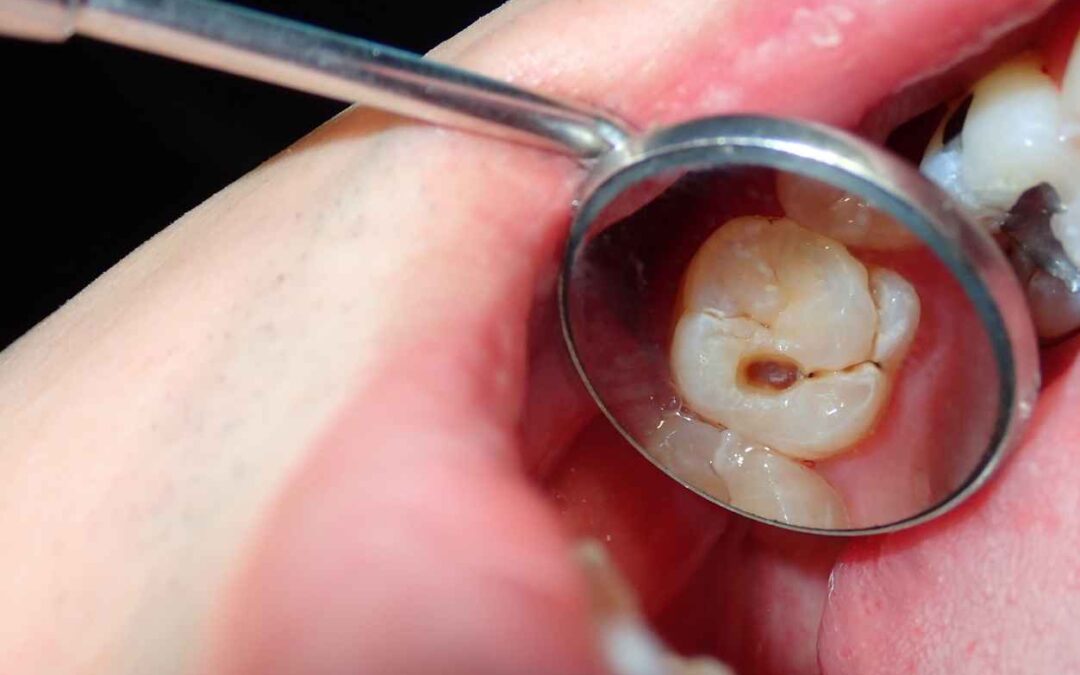Cavities are among the most common dental issues affecting people of all ages. If left untreated, they can lead to discomfort, tooth damage, and other oral health problems. At Flatiron Family Dental in Manhattan, NY, we believe that understanding cavities is the first step toward prevention and maintaining a healthy smile.
In this blog, our team explores the signs of cavities, available treatments, and tips for preventing them.
What Are Cavities?
Cavities, also known as dental caries or tooth decay, are permanently damaged areas in the hard surface of your teeth that develop into tiny openings or holes. They occur when bacteria in your mouth produce acids that erode the enamel, the outermost layer of your teeth. Over time, this acid can break down the tooth structure, leading to cavities.
Signs of Cavities
Cavities can be difficult to detect in their early stages, but there are some common signs to watch for:
- Tooth Sensitivity: If you experience sensitivity to hot, cold, or sweet foods and drinks, it could be a sign of a cavity. This sensitivity occurs when the enamel wears away, exposing the underlying dentin.
- Toothache: A persistent or sharp pain in your tooth is a clear indicator that something is wrong. Tooth pain is often a sign of a cavity, especially if it worsens when biting down.
- Visible Holes or Pits: Cavities can sometimes be seen as small holes or pits on the surface of your teeth. These are usually dark in color and may be noticeable when you look in the mirror.
- Staining: Discoloration, such as brown, black, or white spots on the surface of your teeth, can indicate the presence of a cavity. Staining occurs as the enamel begins to break down.
- Bad Breath or Unpleasant Taste: Cavities can harbor bacteria that produce foul odors and cause bad breath. You may also notice an unpleasant taste in your mouth.
Treatments for Cavities
If you suspect you have a cavity, it’s important to seek treatment promptly to prevent further damage. Here are the common treatments available:
- Fillings: The most common treatment for cavities is a dental filling. The decayed portion of the tooth is removed, and the cavity is filled with a durable material, such as composite resin, amalgam, or porcelain, to restore the tooth’s structure and function.
- Crowns: For more extensive decay, a dental crown may be necessary. A crown is a custom-made cap that covers the entire tooth, providing protection and strength. Crowns are often used when a large portion of the tooth is damaged by decay.
- Root Canal Therapy: If the decay reaches the inner pulp of the tooth, causing infection or severe pain, a root canal may be required. This procedure involves removing the infected pulp, cleaning the tooth’s interior, and sealing it to prevent further infection.
- Tooth Extraction: In cases where the tooth is too severely damaged to be saved, extraction may be necessary. After the tooth is removed, options such as dental implants or bridges can be considered to replace the missing tooth.
Preventing Cavities
Preventing cavities is key to maintaining a healthy smile. Here are some effective strategies to keep cavities at bay:
- Brush and Floss Regularly: Brush your teeth at least twice daily with fluoride toothpaste and floss daily to remove plaque and food particles between your teeth.
- Use Fluoride: Fluoride is a mineral that strengthens tooth enamel and helps prevent cavities. Use fluoride toothpaste and consider fluoride treatments at your dental visits.
- Maintain a Healthy Diet: Limit sugary and acidic foods and drinks, as they contribute to tooth decay. Opt for a balanced diet rich in fruits, vegetables, and whole grains.
- Visit the Dentist Regularly: Regular dental checkups at Flatiron Family Dental in Manhattan, NY, are essential for detecting cavities early and maintaining overall oral health. Professional cleanings can also remove plaque and tartar buildup that regular brushing may miss.
- Consider Dental Sealants: Dental sealants are a protective coating applied to the chewing surfaces of the back teeth, where cavities often form. Sealants create a barrier that helps prevent food and bacteria from getting trapped in the grooves of your teeth.
- Stay Hydrated: Drinking water helps wash away food particles and bacteria, reducing the risk of cavities. Water also helps maintain a healthy level of saliva, which naturally protects against tooth decay.
Ready to schedule a dental checkup? Contact Flatiron Family Dental in Manhattan, NY, today!
Cavities are a common dental issue, but they are preventable with the right care and attention. By recognizing the signs of cavities, seeking timely treatment, and following preventive measures, you can keep your smile healthy and strong.
If you suspect you have a cavity or need a routine check-up, contact Flatiron Family Dental in Manhattan, NY, to schedule an appointment. Our experienced team is here to help you maintain optimal oral health.


